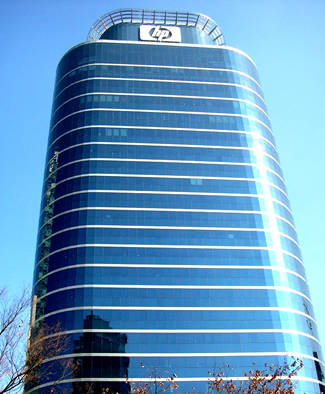Veteran Silicon Valley executive Meg Whitman pleaded for patience yesterday as she revealed that HP's first fiscal quarterly earnings (PDF) had dropped 44% due to a decline in sales across three of its key units: personal computers, printers and enterprise equipment.
Meg Whitman took over as CEO in September from Leo Apotheker, who was fired less than a year after taking over the top role at the company. His departure rounded off a dramatic year for HP, dogged by lows which included complete strategy failures with WebOS and their TouchPad tablet, as well as the confusion around the firm's continual indecisiveness about selling off its personal PC unit, which sent share prices tumbling.
"If you look at business history and you look at companies which have gone through the kind of turnaround that we're leading HP through right now, these things are not quick," she said, suggesting it could take as long as two to five years to fully recover. "It took us a while to get into the situation in which we find ourselves. It's going to take us a little while to get out."
The reported fiscal first quarter revenue dropped 7 percent to $30 billion, ending up slightly below estimates of $30.7 billion by Wall Street. Sales of personal computers in the personal systems group reduced by 15 percent, blamed partly on worldwide hard drive shortages caused by the flooding in Thailand last year.
Revenues from the printing group fell 7 percent, with the drop in sales blamed on weak demand as the US economy continues to struggle. HP's sales of enterprise servers, storage and networking equipment also fell by 10 percent.
All told, Hewlett Packard reported a net income of $1.47 billion for the first quarter, around 73 cents a share, down from $2.6 billion and $1.17 a share in the same period last year. Shares dropped 37 cents to $28.60 in extended trading after the results were announced.
Underinvestment in systems and procedures made these problems even worse according to Whitman, with the natural disaster in Thailand highlighting the issues the company faces with its supply chain and operations. "We were not as effective as we needed to be in matching that supply with that demand," she said, adding that the company needs to focus on stabilizing its finances and make improvements to its operations.
